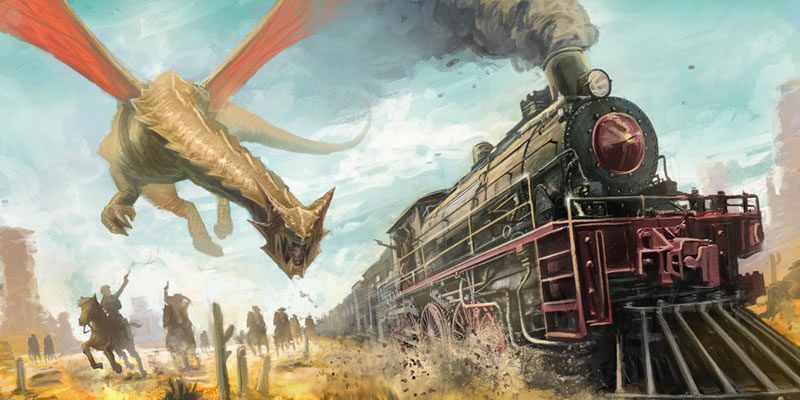Wild West – Crimes and Punishment

I’ve been working to define some more aspects of my Wild West campaign setting based on 1870s Western United States. I started to put together ideas about crimes and punishment, and pulled a lot of ideas from TSR’s Boot Hill. There were many crimes that were punishable by death in the American West in the 1870s, and there were a lot of other minor crimes that required incarceration, fines, and service. Some petty crimes may have been overlooked by someone with a certain reputation, and others unlawful activities required a law enforcement officer or law abiding citizen to take quick action against the offender. So how could I use those ideas in a role-playing game?
While working in a Wild West campaign setting, the law enforcement of some towns may arbitrarily find fault against the player characters by fining them for committing infractions in town because the town is strapped for cash, or they only get paid for finding law breakers and bring them to justice (quota system).
This would force the players to decide if they want to stay on the side of the law by pay petty fines, working in a chain gang, face time in the jail, or instead they could chose to be lawbreakers and fight the established government and continue with a life of crime. The enforcement of laws tended to be more strict around towns, and lax as you moved out. Typically the local peace officers were more concerned with drunkenness, gun control and obvious violations of gambling & prostitution rules. And less concerned with violence.
Bounty
If the offender escapes recapture, it would most definitely mean that a bounty would be placed, and Bounty Hunters would start looking to cash in on their capture. Bounty Hunters can work without the restrictions of the law and due process: breaking into a house, arresting on the Sabbath, and pursuit of the offenders into other jurisdictions. Rewards were based on the crime committed as talked about below.
If the criminal is still at large, sentencing is not determined until they are brought to justice. But a bounty could still be set if the crime has enough witnesses and was a Major Felony, or Hanging Offense. Bounties can be set & paid by the offended party (railroad or bank), and only the territorial government if the outlaw is notorious, and these bounties are usually paid after the criminal offender is brought to justice to stand trial. Dead bounties are paid at half the amounts listed below:
| Original Offense |
Bounty |
| Major Felony | $100 |
| Hanging Offense | $1000 |
| Robbery > $10,000 | $1000 for the leader $250 for others involved |
| Escaped prisoner | $100 plus |
| Any crime that also involves murder | An additional $250 bounty |
Vigilante Justice
Many of the serious crimes didn’t see proper justice, and normally ended with a vigilante mob where the criminal was lynched. That was because lawmen were very sparse, and there could be a separation of 100 miles before you found one. There is a famous story of a lynching of Bill Longley in 1878. Bill was a terrible human being, and notorious outlaw in Texas that was lynched by some vigilantes for being a Horse Thief. But as the vigilantes rode away, they took one last shot at Bill. The shot missed, but weakened the rope. Bill was released from his death throes as the rope broke and he came crashing to the ground. Longley went on to murder many others until he was finally executed that same year.
Criminal offenders at large also have the problem of vigilante justice of being lynched on the spot. Just being accused of crime may be enough (even though innocent) to result in vigilante justice. Vigilante’s are fickle, and follow simple decisions on Vigilante Justice. First roll a d20 and add the character’s charisma modifier:
| Result (d20+charisma bonus) |
Vigilante Justice |
| 1 to 4 | Lynched or Shot roll another d20, 1-9 killed, 11-20 shot/hanged and thought killed) |
| 5 to 8 | Beaten unconscious, then told to leave town or tarred & feathered. |
| 9 to 15 | Weapons and valuables confiscated; told to leave town |
| 16 to 20 | Told to leave town |
There were several organized vigilante groups that roamed the Wild West in search of criminals. You can see a list here to get some ideas: Vigilante List.
Crimes
These are the typical crimes of the day, and should probably be shared by the players. Either for their safety, or as a means for them to become vigilantes or bounty hunters in the Wild West. To establish the outcome of a punishment for breaking the law, the following crimes have been placed into a range of different categories. Also, those associates found with the criminal offender were often found guilty by “association”. Another good plot hook if the players find themselves working with/for a criminal.
Below is a list of typical crimes that may come up in the campaign:
Misdemeanors
- Disorderly Conduct
- Concealed Weapon
- Assault
- Vagrancy
- Drunkenness
Minor Felonies
- Petty Theft <$500
- Trespassing
- Bribery
- Aggravated Assault
- Manslaughter
- Fraud
Major Felonies
- Robbery >$500
- Rustling
- Assault with a deadly weapon (gun or knife)
- Arson
- Attempted Murder
- Selling Whiskey to Indians
Hanging Offenses
- Murder
- Cheating at cards
- Horse Theft
- Selling Guns to Indians
Judgement Results
The offending character or non-player character is “judged” by the local magistrate or judge by rolling a d20 and adding the character’s charisma modifier (if they are present at the trial). The higher the result then the punishment is less severe. This serves as the trial and sentencing of the offender in court. Multiple offenses may require numerous determinations of guilt by a die roll as determined by the game master.
I came up with a simple system to determine results of a judgement by using some of the punishments from TSR’s Boot Hill 3rd Edition RPG. You can modify the table to your own taste, or play the part of the judge and choose one that fits. These results vary based on the severity of the crime, and here is the table that I put together:
| Judgement |
Misdemeanor | Minor Felony | Major Felony | Hanging Offense |
| 1 and under | $90 & 90 days jail | 6 to 24 months (1d4 x 6) |
2 to 20 years prison (2d10) |
Lynched by mob |
| 2 to 4 | $30 & 30 days work gang |
$90 & 90 days jail | 6 to 24 months (1d4 x 6) |
Sentenced to be hanged |
| 5 to 7 | Fined $30 | $30 & 30 days work gang |
6 to 24 months (1d4 x 6) |
Sentenced to be hanged |
| 8 to 10 | Fined $15 | Fined $60 | 6 to 24 months (1d4 x 6) |
20 years to life |
| 11 to 15 | Jailed overnight | Fined $30 | 1 year probation | 2 to 20 years (2d10) |
| 16 | 90 days probation | Jailed overnight | Fined $480 | 6 to 24 months (1d4 x 6) |
| 17 | innocent | 90 days probation | Fined $240 | 1 year probation |
| 18 | innocent | innocent | 90 days probation | 1 year probation |
| 19 | innocent | innocent | innocent | Fined $1000 |
| 20 and over | innocent | innocent | innocent | innocent |
Judgement: Add Charisma modifier to the Judgement check roll. Hiring a lawyer will give a +1 bonus on the Judgement check for a $100 lawyer fee. Witnesses that can be at the trial add a total of -2 or +2 to the roll based on the collective testimonies either for (+2) or against(-2) the offender.
After judgement, characters without enough money to pay fines can work off the fine at a rate of $1 per day. Any sentence that goes beyond 90 days is served in a federal, state or territorial penitentiary.
The Code of the West
Here’s another list that you could share with players about the Code of the West.
“The Code of the West was a gentleman’s agreement to certain rules of conduct. It was never written into the statutes, but it was respected everywhere on the range. ” – Ramon F. Adams
Though the Code of the West was always unwritten, here is a “loose” list of some of the guidelines:
- Don’t inquire into a person’s past. Take the measure of a man for what he is today.
- Never steal another man’s horse. A horse thief pays with his life.
- Defend yourself whenever necessary.
- Look out for your own.
- Remove your guns before sitting at the dining table.
- Never order anything weaker than whiskey.
- Don’t make a threat without expecting dire consequences.
- Never pass anyone on the trail without saying “Howdy”.
- When approaching someone from behind, give a loud greeting before you get within shooting range.
- Don’t wave at a man on a horse, as it might spook the horse. A nod is the proper greeting.
- After you pass someone on the trail, don’t look back at him. It implies you don’t trust him.
- Riding another man’s horse without his permission is nearly as bad as making love to his wife. Never even bother another man’s horse.
- Always fill your whiskey glass to the brim.
- A cowboy doesn’t talk much; he saves his breath for breathing.
- No matter how weary and hungry you are after a long day in the saddle, always tend to your horse’s needs before your own, and get your horse some feed before you eat.
- Cuss all you want, but only around men, horses and cows.
- Complain about the cooking and you become the cook.
- Always drink your whiskey with your gun hand, to show your friendly intentions.
- Do not practice ingratitude.
- A cowboy is pleasant even when out of sorts. Complaining is what quitters do, and cowboys hate quitters.
- Always be courageous. Cowards aren’t tolerated in any outfit worth its salt.
- A cowboy always helps someone in need, even a stranger or an enemy.
- Never try on another man’s hat.
- Be hospitable to strangers. Anyone who wanders in, including an enemy, is welcome at the dinner table. The same was true for riders who joined cowboys on the range.
- Give your enemy a fighting chance.
- Never wake another man by shaking or touching him, as he might wake suddenly and shoot you.
- Real cowboys are modest. A braggart who is “all gurgle and no guts” is not tolerated.
- Be there for a friend when he needs you.
- Drinking on duty is grounds for instant dismissal and blacklisting.
- A cowboy is loyal to his “brand,” to his friends, and those he rides with.
- Never shoot an unarmed or unaware enemy. This was also known as “the rattlesnake code”: always warn before you strike. However, if a man was being stalked, this could be ignored.
- Never shoot a woman no matter what.
- Consideration for others is central to the code, such as: Don’t stir up dust around the chuck wagon, don’t wake up the wrong man for herd duty, etc.
- Respect the land and the environment by not smoking in hazardous fire areas, disfiguring rocks, trees, or other natural areas.
- Honesty is absolute – your word is your bond, a handshake is more binding than a contract.
- Live by the Golden Rule.
Links
[http://tribality.com/2016/01/15/tribality-publishing-gunfighter-class/]
[http://www.legendsofamerica.com/we-codewest.html]
[http://www.legendsofamerica.com/we-vigilantelist.html]
[https://en.wikipedia.org/wiki/Boot_Hill_%28role-playing_game%29]



